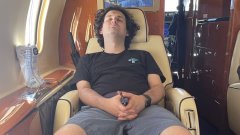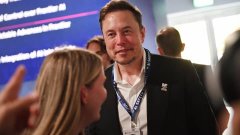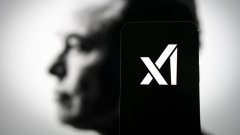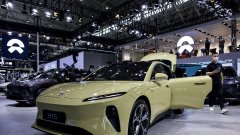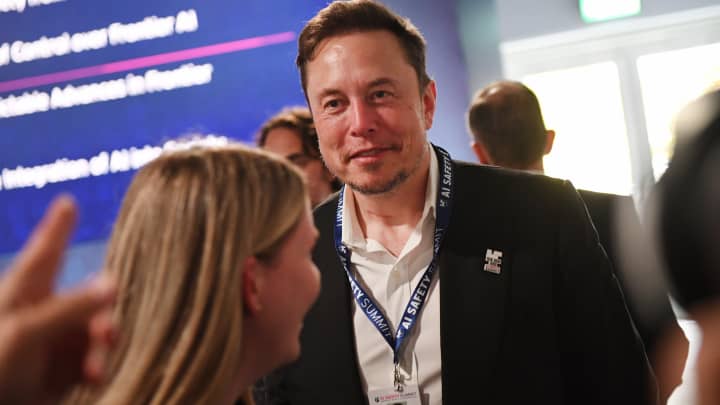
LONDON — Elon Musk thinks that artificial intelligence could eventually put everyone out of a job.
The billionaire technology leader, who is CEO of , SpaceX and CTO and executive chairman of X, formerly known as Twitter, and owner of the newly formed AI startup xAI, said late Thursday that AI will have the potential to become the "most disruptive force in history."
"We will have something that is, for the first time smarter than the smartest human," said at an event at Lancaster House, an official U.K. government residence.
"It's hard to say exactly what that moment is, but there will come a point where no job is needed," Musk continued, speaking alongside British Prime Minister Rishi Sunak. "You can have a job if you wanted to have a job for personal satisfaction. But the AI would be able to do everything."
"I don't know if that makes people comfortable or uncomfortable," Musk joked, to which the audience laughed.
"If you wish for a magic genie, that gives you any wish you want, and there's no limit. You don't have those three wish limits nonsense, it's both good and bad. One of the challenges in the future will be how do we find meaning in life."
Musk has on multiple occasions warned of the threats that AI poses to humanity, having once said it could be more dangerous than nuclear weapons. more advanced than OpenAI's GPT-4 software in a widely cited open letter released earlier this year.
Other tech leaders disagree with that view, including 's boss, Alex Karp. , Karp said he is of the view that "many of the people asking for a pause, are asking for a pause because they have no product."
Musk's comments Thursday follow the conclusion of a landmark summit at Bletchley Park, England, where world leaders agreed to a global communique on AI that saw them find common ground on the risks the technology poses to humanity.
Technologists and political leaders used the summit to warn of the existential threats that AI poses, focusing on some of the possible doomsday scenarios that could be formed with the invention of a hypothetical superintelligence.
The summit saw the U.S. and China, two countries clashing the most tensely over technology, agree to find global consensus on how to tackle some of the more complex questions around AI, including how to develop it safely and regulate it.
Correction: Elon Musk is CEO of Tesla. An earlier version misstated his status.

